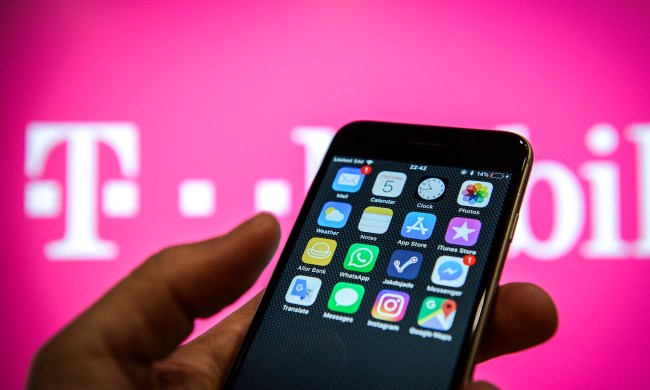
T-Mobile announced a purchase on Monday of over $2.3 billion of 700 MHz-A block spectrum from Verizon, a smart move for the scrappy fourth-place carrier. Is it a sign that the company’s 2014 will be as dynamic as its stellar 2013?
The company will use the spectrum, which covers 158 million people, to bolster its high-speed LTE network. With this new bundle of airwaves, T-Mobile will have stronger coverage in major U.S. cities, including New York, Los Angeles, Dallas, Houston, Philadelphia, Atlanta, Washington D.C., and Detroit. The 700 MHz spectrum is especially useful to strengthen calls within buildings, since the low frequency penetrates brick and thick walls better than others.
“This is a great opportunity to secure low-band spectrum in many of the top markets in America,” John Legere, President and CEO of T-Mobile, said in a statement. “These transactions represent our biggest move yet in a series of initiatives that are rapidly expanding our already lightning fast network and improving its performance across the country. We will continue to find ways to advance our customers’ network experience just as our bold Un-carrier moves have shaken up the wireless industry to benefit consumers.”
T-Mobile made news in 2013 for its triumphant run of doing borderline-crazy stuff, like breaking from the two-year contract mold and offering free international texting and data in 100 countries (a move that warms this nomadic writer’s heart). Despite (or rather, because of) an unconventional approach, Legere turned the company around dramatically, although it still lags far behind Verizon and AT&T. And with the news of T-Mobile’s share grab, stocks in its parent company Deutsche Telekom spiked 2.5%. The market believes in T-Mobile. Digital Trends’ intrepid mobile editor believes in T-Mobile. And AT&T is freaked out enough it started offering $450 deals to T-Mobile customers who agreed to switch to AT&T.
Of course, even as T-Mobile continues to bulk up its spectrum stores, it is still a strong contender for a merger with Sprint, the third-place carrier. Sprint is owned by SoftBank, a Tokyo-based telecom company, and according to a report from last month, the company is considering buying of shares in T-Mobile and smashing the two second-tier carriers together into one Frankencarrier.
If that happens, it will be a shame if it means the end of T-Mobile’s “uncarrier” philosophy, which is adding much-needed variety into the staid and sometimes customer-gouging U.S. mobile market.


